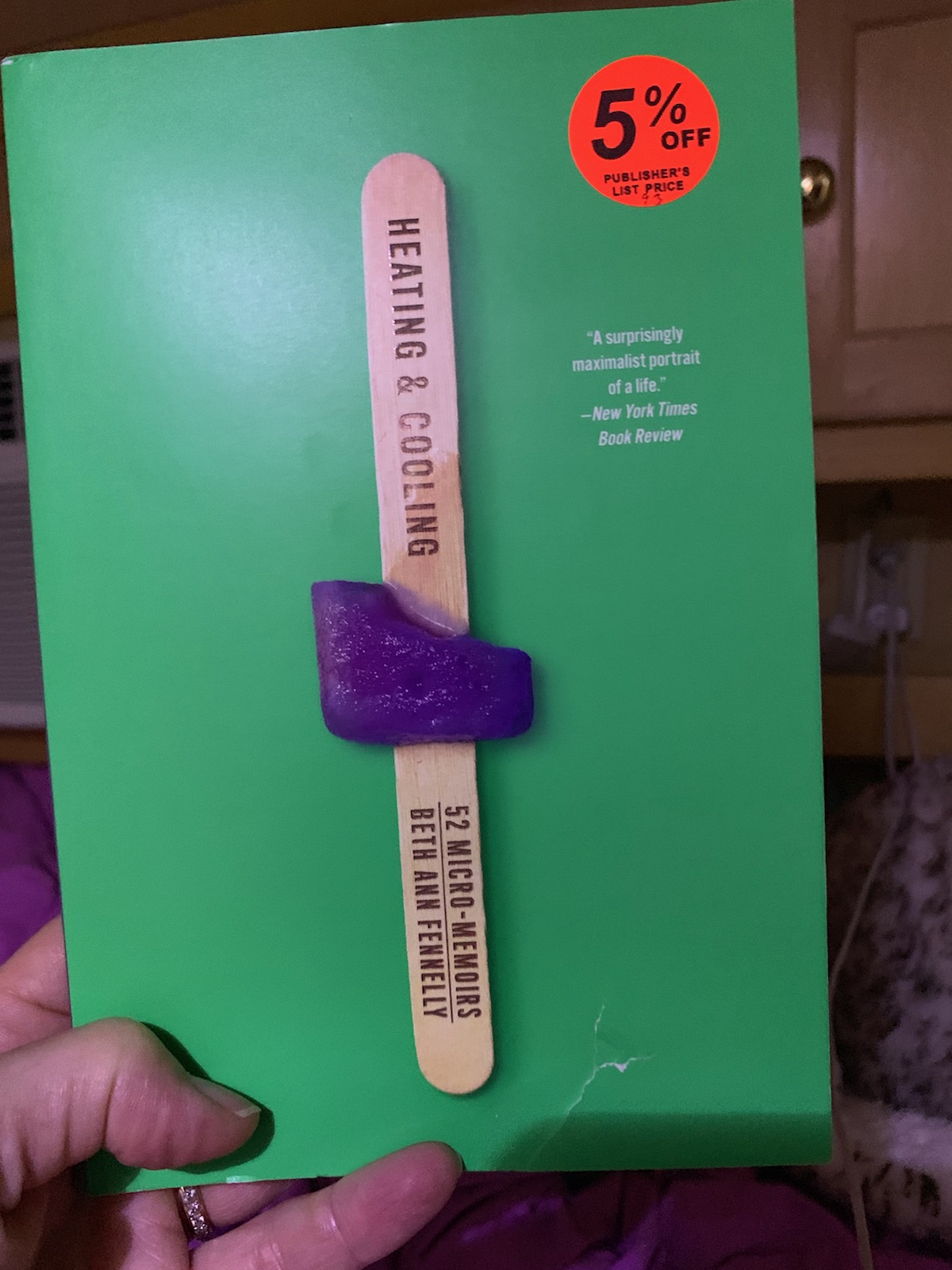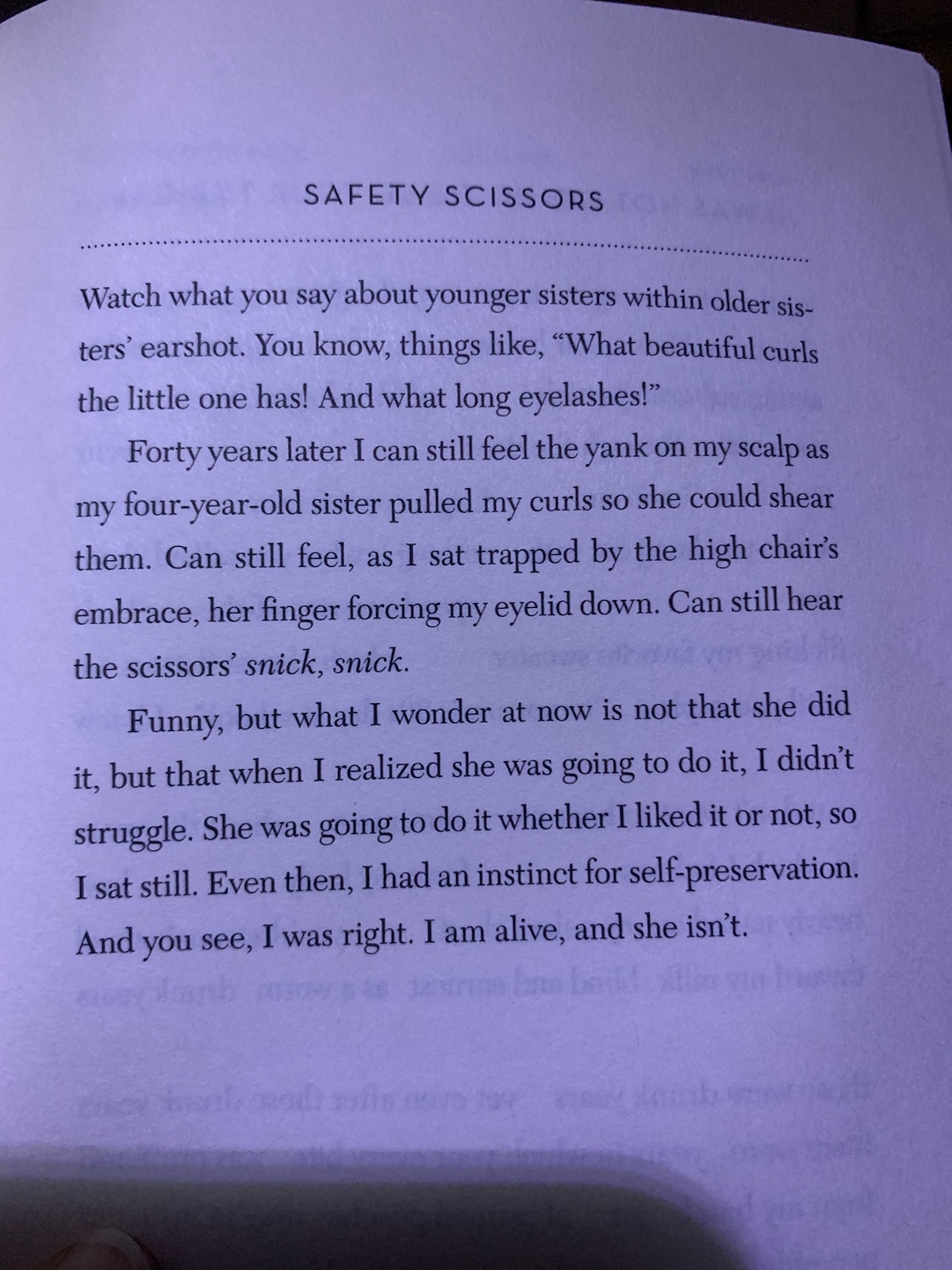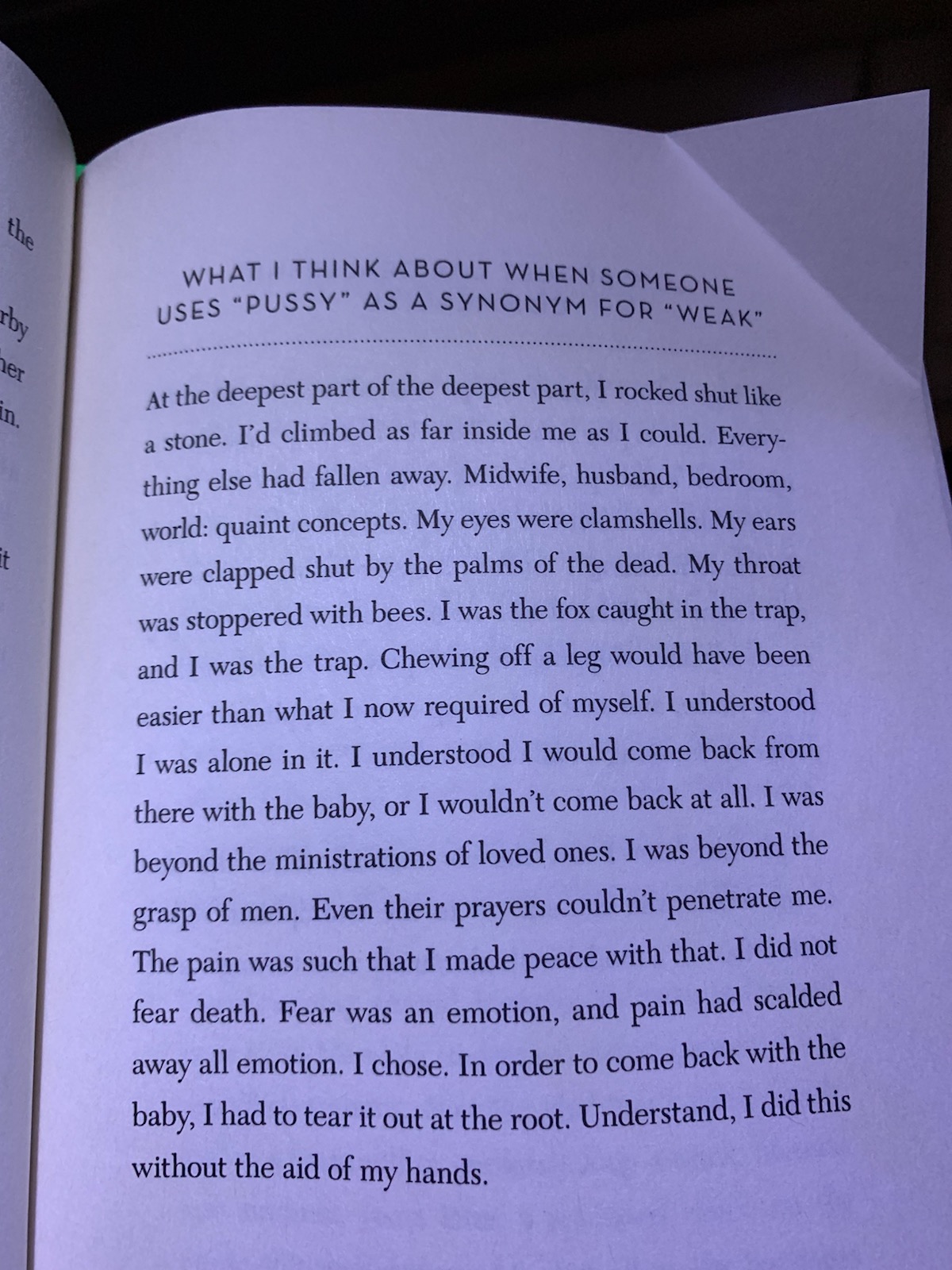In college, Joyce Carol Oates was one of the first short story authors I feel in love with. The fact that she lived in my hometown only made it sweeter. I read everything I could find of her. I studied her biography. When I found out that her first story was published via a Seventeen Magazine Contest, I knew I too had to apply! By some stroke of luck, my story, Family Heirloom, earned an honorable mention in the contest, along side the submission of my college friend, Holly, and I believe another classmate, too. We were very proud of our honorable mention trifecta. And this early win in publishing, kept me motivated to keep writing. But the honorable mention meant that Family Heirloom never saw the light of day. So moving fear aside, I am sharing my first attempt at writing "real" fiction here with you:
Family Heirloom
A great piece of pie must be imperfect. The lattice-work top should crack a little when cut, the cherry filling slipping out of the sides and onto the plate. Perfect pies come from machines and taste that way, Grandmother said, on account of Great Aunt Viola and the lopsided piece of pie which got passed her way. She was right though, sloppy pie is the best pie. I ate mine quickly, getting down to the last piece of crust, the top edge, darker and tougher than the rest. I gripped my fork and pushed into thepiece.
"Why, Judith! Look at your granddaughter," Great Aunt Viola exclaimed.
Mother turned and looked at me. "Lily, eat like a lady," she said. Mother had sat with me for hours last week trying to get this whole tea thing right. After I spilled the water we were pretending to be tea for the third time, her face turned red, and she left me to clean up the mess by myself. Until today, I never thought my mother's face could get any redder than it had at our practice tea.
"No, look at the girl's hands. Why the child has such long fingers! I do believe they are the hands of a piano player," Aunt Viola said, setting down her cup and saucer for emphasis.
"I suppose she does," answered Grandmother, kneading my fingers in her hands. "Perhaps, we'll be able to do something about that." She often said things like that, giving off the impression that she cared very little for the matter one way or the other, but the truth was Grandmother never said a thing unless she had some point to make. She just didn't always want to let on to what her opinion might be.
Great Aunt Viola, a woman of extraordinary fashion with her deep, purple, peplum dress and thick, gold and ruby rings, just looked at Grandmother, her sister of the last sixty years, and smiled. "I trust you understand the interest of the child. She is family," Viola said, looking past my mother to me. I smiled back, before looking my hands over to see what the bother was about.
This small point, one of a thousand made throughout the Great Aunt Viola visit of that summer, settled something that Mother and I had very little to do with. A month after the visit, a piano arrived, sent by Viola, from her very own music room, not as gift for me but as a service to my grandmother. My mother just shook her head as I stripped the cardboard down away from the stately upright.
"Your father played," she said flatly.
"I believe he did," answered Grandmother, before she looked off out the window, to a space in the distance reserved for thoughts of my father, then gone for three months. He wasn't even dead. Two months ago, he came homeannouncing he had a job, in Texas, drilling oil offshore. He told us to pack up a few things for a long trip and get in the car. Then, he dropped us off here with his mother. She took us into the house, and waved him off. She told us he'd send for us shortly. Mother told me not to hold my breath and that he'd be back first. Now Grandmother stared off like that for a few moments, looking deep into nowhere, before she turned and asked me where the piano should go.
"Our room," I said, meaning where Mother and I slept in the back of the house, "so no one will be bothered by my noise."
"Dear, no one will hear you back there," she said.
"Exactly," my mother said. She didn't especially like noise, especially not noise from me. She felt that while other people's noise was beyond her control, my noise was within reach of two solid fingers poised for a pinch.
"That's not the purpose of a piano," Grandmother said, before she moved away from us and the tall, polished upright.
She started walking around the parlor, slow at first, then briskly. I watched her walk, the color of her faded, plaid house dress shifting as she passed in and out of the sunlight. Her shoes were old and cracking. The fake, black leather peeled away from the foam insides around the laces and the toes. She said they were comfortable that way, and I believed her. My mother said she would never wear shoes like that. She called them old-lady shoes and said, laughing, the nursing home attendent would have to cut her feet off to ever get shoes like Grandmother's on her feet. Still, those shoes reminded me of a couch, an old couch, good for naps and magazine reading. Grandmother paused, rearranged a doily on the arm of the Chesterfield, and left the room.
"Here," she called from the front porch.
Mother and I went to find her pointing at a place where a sun beam landed on the floor. The shadow mimicked the window; the panes of the window laid out on the floor like checkerboard. It was as if the window had fallen out of the wall and placed itself down on the floor, piece by piece.
"Won't it be too loud out here? Bothering the entire neighborhood?" Mother asked.
"I don't believe so," Grandmother answered. "What do you think, Lily?"
I looked up at Mother and Grandmother, wondering how they ever got along in the baking business together. I avoided their eyes, by looking past them or back down at the floor. My mother had course hands, flour-crusted around her fingernails from the morning's bread orders. She always does the bread, kneading and pounding the dough into twists and loaves. I watch her from the living room, punching and folding the dough until it becomes soft smooth perfection. She tapped her foot and stepped inside the house.
"I like it here, too."
"You hear that, Lynne? The piano goes out here. That okay with you?"
"Does my opinion ever really figure into either of your plans?" Mother shouted, from the back of the house, slamming the screen door, at that point a familiar sound.
Later on that day, I walked past my mother on the back porch, where she often worked. The porch seemed as if it wasn't really part of the house. The wood siding that made up the main wall and skirted the area below the screens wasn't even the same size, kind or color as the rest of the house. It was gray in color, a shiny, blue gray, meant to stand up to the elements. There was even a certain dust to the porch, clinging to the little, empty spaces of the screens and on the floor, left behind from the many people who had gone in and out. I stopped in front of my mother, looking down at the comic section which she peeled potato skins onto.
"You, your father and that woman. One in the same," she said.
She often said things like that, in a low voice without looking at you. It was the same voice that told you things the third, fourth, or fifth time, on a day when she already had done a lot of work but had a lot more to do. It was shouting without raising her voice. It was the voice that in the morning before coffee said, Lily, be silent, or in the afternoon while you're playing jacks on the back porch said, stop. She dropped a quartered potato onto the newspaper instead ofinto the strainer and cursed.
"Go play something," she said, a new order, fast to become her favorite of the summer.
I liked to sit in front of the piano, pressing hard on the low notes, mad at the world. The keys felt nice under my fingers, smooth and cool, like the top of a Baked Alaska. I ran my fingers over their tops, without making noise. It was making music without sound, like dancing. The instruction books we ordered by mail made a little sense, but required more concentration than I could muster in the heat ofan average summer afternoon. Those books were reserved for Sunday mornings when Grandmother would sit on the porch behind me, asking to hear a song.
She'd finish her glass of ice tea and stand up, resting her hands on my shoulders. Let me help you, she said, taking the instruction book off the rack. A breeze blew in from behind us, pushing her dress up and around me. I loved the way her cotton house dress felt on the back ofmy arms, all cool and tickling, smelling like baby powder and flour. After we picked out the basic notes and tested their locations, Grandmother sat down on the bench and played out the first page with me. Then, she got up, sat back into her own chair and listened to me pound through the whole thing. Mother would stop in the doorway to the kitchen, shake her head, and go back to making pies or whatever else for the new week's orders.
On regular days, I just perched myself up on the high stool, and lightly touched the keys, making up combinations which sounded good to my ears only. I wanted to make people, like my mother used to, on Saturday nights after my father had left for bowling. She'd turn the radio on to the station that played slow songs with sad lyrics. My mother danced with all of her being, standing tip-toed, as if she were wearing high heels, swaying with the smallest motion. She'd be the middle of the living room, the music so loud, her hand held up to her mouth like a microphone. I watched her pretending to be someone else. I would say her name, wanting to see her face, but she never heard me. My mother wasn't there anymore.
Saturday night, after all the lights were off, I heard Mother leave our room. She got up out of bed, trying hard not the let the springs squeak, and slipped out into the kitchen. I watched her go, waited a minute, then followed.
She stood in front of the sink, holding on to the edge of the counter looking out the window into the night. The moon shone brightly over the yard, coming through the trees and down in the window, onto my mother's face. She looked different then, less tired somehow, and still, as if not a thing in her body moved, not even her heart.
I watched her pull down a glass from the cupboard and get out the milk. I walked into the room, slowly, not wanting to startle her or wake Grandmother with noise. The linoleum was cold under my feet. She pointed at the cupboard and sat down. I got down my own glass and joined her at the table.
"I'm tired," she said.
"Go to sleep then, " I answered. She turned away, looking over her shoulder at the shelves of canisters and spice jars.
"Tough week, lots of pies."
"Yeah," I said. "Who for? Anyone from church? Anyone special?"
"Just people," she said. "People like Viola, with money and parties and all the time in the world to be doing anything but making it themselves."
"Viola's okay," I said, picking up the silver sugar bowl, another gift from the great Aunt Viola visit. It was very old but shiny, belonging at one time to my great great grandmother. I watched the distorted reflection of my mother and her talking hands move in the lid of the bowl.
"Oh, everybody's okay, some people you just have to deal with any way." She stopped and looked up, quiet and listening. "She asleep?"
"Snoring. Can't you hear it?"
"Sure, sure. Thought it might have been a neighborhood dog."
I looked into her face to make sure it was okay to laugh. Grandmother sounded like a beagle in a cave with an echo. She lost some dignity at night, the quiet of her house betraying her in the darkness.
"It just proves that she never stops making noise. All day long, in that voice. Telling me this, telling me that. Then the snoring at night, ruining everybody's sleep."
I nodded, letting her go on, watching her hands move.
"She gets me, Lily. Really gets me."
She moved to stand, picking up the silver sugar bowl. So suddenly the bowl dropped, slipped really, falling down, landing so far from Mother and me, to the floor. The hinged lid snapped off, spiraling away toward the stove. Sugar spilled across the floor, sinking into the cracks of the worn, yellow linoleum.
I jumped up out of my chair and settled the loose lid. Silently we paused, hunched over the pile of spilt sugar, listening for sounds of Grandmother. She exhaled another breath, long, deep, and loud, but still asleep.
"Serves her right. Family heirlooms. Ha!"
Laughing, we cleaned up the spilt sugar, refilled the bowl, balanced the lid on its hinges and went to bed.
Sunday morning started as usual, with me and Mother making our scrambled eggs and toast before Grandmother came down. We ate our breakfast quickly, leaving the kitchen to her. Mother took up a book on the back porch, and I waited at the piano.
Grandmother appeared and slowly set about making her coffee in the kitchen. I timed my wait with the noises from the percolator. I chose my song for the day, Lucy's Lucky Waltz, and pressed down on the first few notes. Grandmother and I had started Lucy's Lucky Waltz earlier in the summer, and my fingers found the notes easily. Soon the porch was filled with music. I kept playing the first section, repeating it until I didn't have to look at the keys. I turned to call out for Grandmother and found both of them standing beside me.
I looked up at them, smiling, proud of my progress on the song. My fingers moved over the keys without any attention. My mother reached out and placed her hand on my shoulder.
"Stop," she said. In her other hand, she held the sugar bowl, broken, dented, and not quite as shiny as it used to be. "Tell her, tell your Grandmother, that I did not break this on purpose?"
I dropped my hands away from the piano and looked at my reflection in the broken sugar bowl. I had watched it fall, slip really, from my mother's hands and spiral around the floor. She picked it up, but did she drop it? Neither one of us had even cared that it broke when it fell. Laughing, we picked the mess up and went to bed. It wasn't our bowl. Technically, it wasn't even Grandmother's bowl--it really belonged to some long-dead woman she never met. On purpose would be wrong, and my mother did not do the wrong thing on purpose, not then, not ever, to Grandmother, my father, or me.
"Of course not," I said. "It was an accident."
"There, " my mother said, handing the sugar bowl to Grandmother.
Grandmother stood there for a moment, staring down at the broken sugar bowl, before placing it on my lap. Slowly, she lowered the lid over the keys to the piano and left the room.






























